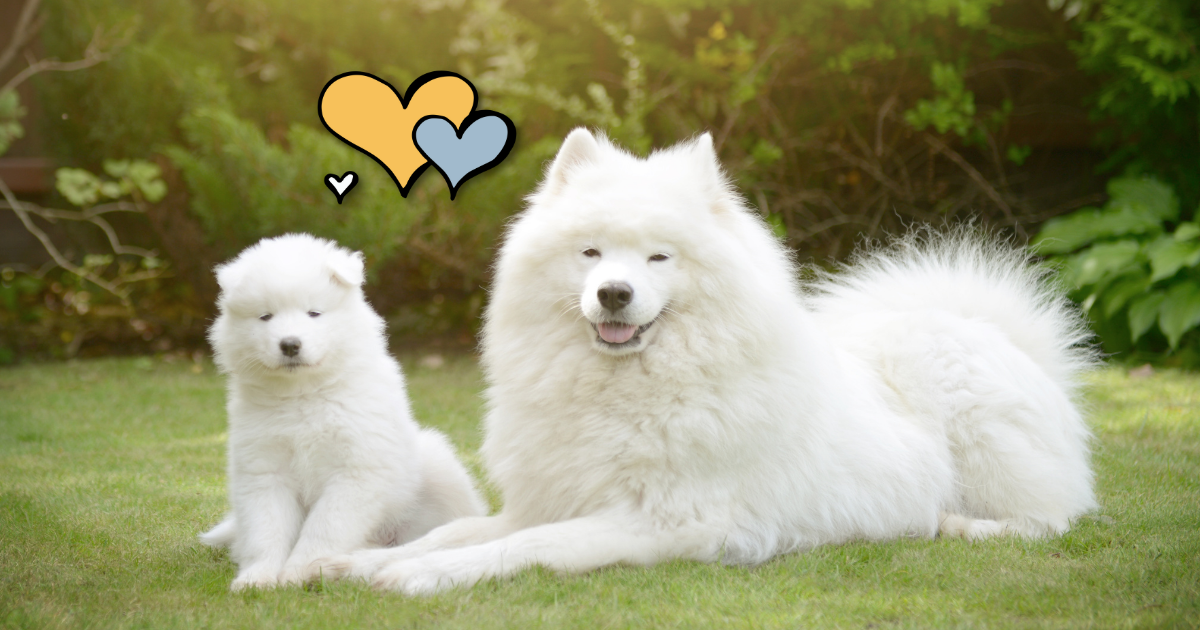
Dogs vs. Puppies: Key Differences and Best Care Practices
September 08, 2023Our furry companions, dogs, and puppies hold a special place in our hearts. Both offer joy, companionship, and unconditional love. However, there are important distinctions between the two, including their care needs and developmental stages. This article will explore the definitions of puppies and dogs, highlight their differences, and provide essential care practices for each.
What Is A Puppy and How Old to Be Considered a Puppy?
A puppy is a young dog in its early stages of life. Typically, puppies are considered from birth up to one year of age. Throughout this period, young puppies experience notable phases of both physical and behavioral growth. They are energetic and curious and require extra attention and care.
What Is A Dog and How Old to Be Considered a Dog?
A dog is an adult canine that has passed its puppy stage. The age at which a puppy is considered a dog varies depending on the breed, size, and individual development. Generally, most dogs are considered adults between one and two years of age. However, larger species may take longer to reach full maturity, sometimes only once they are three or four years old.
Differences Between Puppies and Dogs:

Energy Levels
Puppies are known for their boundless energy and enthusiasm. They require more exercise and playtime than adult dogs, as they have a surplus of energy to burn. Adult dogs, on the other hand, are generally calmer and have more stable energy levels.

Nutritional Needs
Puppies have specific dietary requirements to support their rapid growth and development. They need a diet higher in calories, protein, and essential nutrients. Adult dogs have different nutritional needs, typically including a balanced diet suitable for their size, breed, and activity level.

Training and Socialization
Puppies are in the prime stage for learning and socialization. They are highly receptive to training and require consistent guidance to develop into well-behaved adult dogs. Adult dogs may already have established behaviors and require additional training to address specific issues.

Health Considerations
Puppies are more vulnerable to certain health risks, such as parasites and infectious diseases. They require a series of vaccinations and regular visits to the veterinarian for preventive care. While still needing routine healthcare, adult dogs have more developed immune systems and may require different types of care, such as dental cleanings and senior health screenings.
Care Practices
Feeding

Puppies typically require three to four small daily meals to support their growth. As they mature, the number of meals can be gradually reduced to two meals per day for adult dogs. Always consult your veterinarian to determine the appropriate feeding schedule and portion sizes for your dog or puppy.
Incorporating Salmon Oil for Dogs into Their Diet:

Consult with Your Veterinarian: Before adding salmon oil to your dog's diet, consult your vet for guidance on dosage and frequency.
Choose Quality Salmon Oil: When selecting a salmon oil product for your beloved dog, it is best to choose a guaranteed quality salmon oil. Our salmon oil for dogs is meticulously made, and this premium salmon oil is specially formulated to meet the unique dietary needs of dogs.
Start Slowly: Introduce small amounts of salmon oil into your dog's food, gradually increasing the dosage.
Mix with Food: Mix salmon oil thoroughly with your dog's regular food for even distribution.
Monitor Effects: Watch for improved coat, skin, joint health, and overall well-being.
Adjust as Needed: Follow your vet's advice on adjusting the dosage based on your dog's needs.

Grooming
Puppies and dogs benefit from regular grooming to maintain a healthy coat and skin. The frequency of grooming sessions may vary depending on the breed and coat type. Generally, puppies can be introduced to grooming at a young age and gradually acclimated to the process. Considering their grooming requirements, adult dogs can be groomed as often as needed.

Playtime and Exercise
Puppies require plenty of playtime and exercise to expend energy and develop strong muscles and coordination. Engage them in interactive play sessions and provide appropriate toys for mental stimulation. Adult dogs also need regular exercise but may have different energy levels and exercise requirements. Consult with your veterinarian to determine the duration and intensity of physical activity.
Is It Better to Get a Puppy or a Dog?

Deciding between a puppy and a dog depends on individual circumstances and preferences. Puppies require more time, patience, and training, making them a better choice for those ready to invest in their early development. On the other hand, adult dogs may be a suitable option for individuals or families seeking a more settled companion with potentially fewer training demands.
Whether you choose a puppy or a dog, the most crucial factor is to love and care for them unconditionally. Provide them with a safe and nurturing environment, meet their physical and emotional needs, and cherish the lifelong bond you will create.
Conclusion
Dogs and puppies bring immense joy and love into our lives. Understanding the differences between the two stages of life and implementing appropriate care practices are essential for their overall well-being. Whether you bring a puppy home or adopt an adult dog, remember that they deserve our unwavering love, care, and commitment. Celebrate the uniqueness of each stage and cherish the special moments you share with your furry companion.
